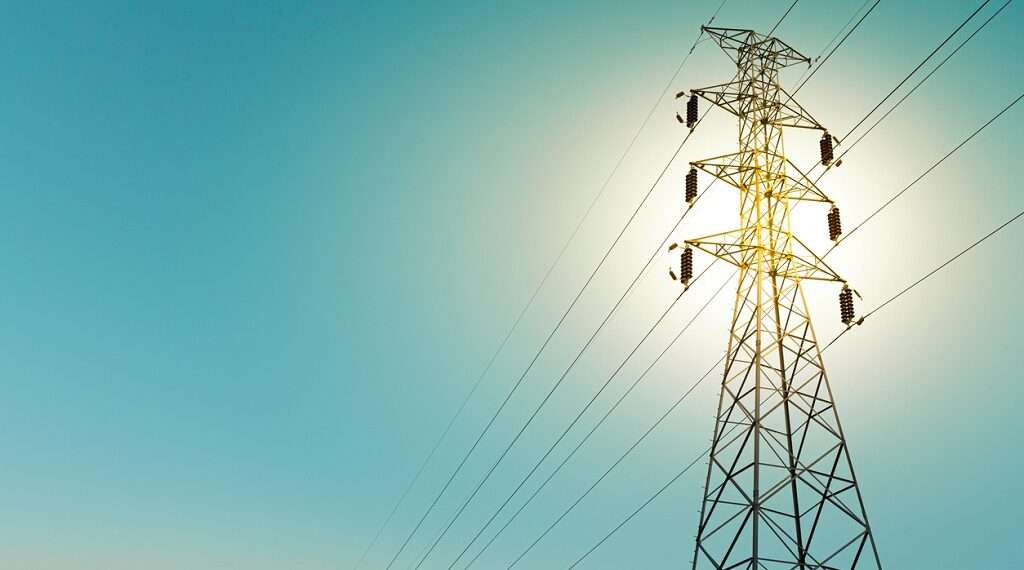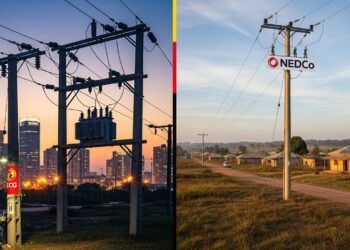A recent analysis by the Institute for Energy Security (IES) has raised concerns about Ghana’s persistent power generation shortfalls and their far-reaching implications for domestic energy reliability and regional export obligations.
Covering data from September 1 to October 27, 2024, the report highlighted an average daily shortfall of 700 megawatts (MW), which, on certain days, surged to nearly 1,000MW. This deficit not only disrupts local energy supply but has also hampered Ghana’s ability to consistently fulfill its power export commitments to neighboring countries like Togo, Burkina Faso, and Benin.
The IES report indicated that Ghana’s power generation averages approximately 3,000MW daily, which falls short of the nation’s peak demand of around 3,700MW.
“The consistent inability to meet peak demand not only affects the reliability of local supply but also limits our ability to maintain stable export volumes.”
Institute for Energy Security (IES) Report
Ghana has long been a reliable energy exporter in West Africa, with neighboring countries like Togo, Burkina Faso, and Benin heavily dependent on its electricity exports.
However, the daily generation shortfall has led to fluctuations in export volumes, which range between 100 MW and 400 MW depending on local demand. During peak periods, Ghana is often forced to reduce or suspend exports, prioritizing domestic consumption to prevent widespread power outages.
“While Ghana has consistently maintained some level of exports, the shortfalls in meeting domestic demand force us to prioritize local consumption,” IES reported.
The report added that declining export volumes could negatively impact regional trade relationships, as neighboring countries depend on predictable supply to manage their own energy demands.
In the context of West African energy security, IES warned that disruptions in exports may strain bilateral agreements, ultimately affecting Ghana’s standing as a trusted energy provider in the region.
To alleviate domestic power shortages, the report revealed that Ghana imported 1,605 MW of electricity from Côte d’Ivoire between September 12 and October 7, 2024. However, this dependency on imports is not considered a sustainable solution.
The IES report emphasized that while imports can temporarily ease supply constraints, they underscore a more systemic issue in Ghana’s power generation infrastructure.
“The reliance on imports to offset domestic shortfalls is a signal that Ghana’s generation system is stretched thin,” the report highlighted, pointing out that the country’s energy framework lacks both the stability and adaptability needed for long-term demand growth.
Not only does this reliance add pressure to Ghana’s budget, but it also highlights the urgent need for a robust domestic energy strategy that can reduce reliance on costly imports.
Structural Challenges and Recommendations

The IES attribute Ghana’s power generation limitations to several key issues, including forced plant shutdowns, operational resource constraints, and the burden of financial debt.
“Ghana’s power infrastructure has potential to bridge the demand gap, but persistent issues restrict full utilisation,” the report noted, adding that on October 7, 2024, power generation nearly met peak demand – an isolated instance that underscores limitations in the system’s ability to sustain increases.
“The data suggest that the generation system lacks the adaptability needed for effectively responding to peak demand variations; a situation that exacerbates Ghana’s reliance on imported power.”
Institute for Energy Security (IES) Report
The report suggested that maximizing the existing dependable capacity of 5,000 MW could provide enough flexibility to both meet peak demands domestically and maintain steady exports to neighboring countries.
IES also advocated for demand-side management policies that can help balance energy usage with available resources.
These policies could include demand-response programs, which adjust power distribution based on real-time demand, potentially easing pressure on the grid during peak times.
“To bridge the gap between generation and demand, Ghana may need to consider investments in new facilities and infrastructure upgrades to maximize output.”
Institute for Energy Security (IES) Report
The report underscores an urgent need for Ghana to fortify its power generation capacity to secure its domestic supply while maintaining its regional energy commitments.
These improvements would not only provide a more stable energy supply for Ghanaian households and businesses but also enhance the country’s role as a reliable energy partner in West Africa.























